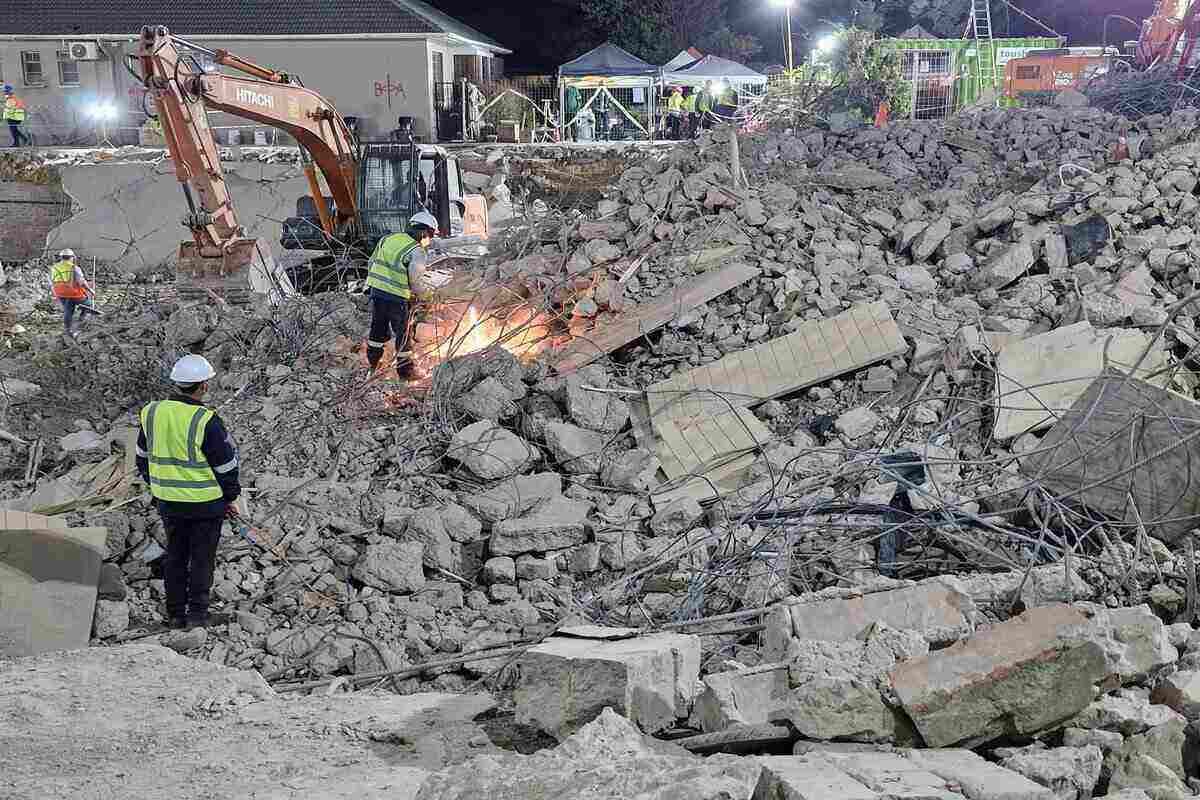
An independent forensic investigation into the building collapse in George, in the Western Cape, has revealed systemic failures at multiple levels.
The report cites widespread non-compliance with regulatory standards and mismanagement by both the National Home Builders Registration Council (NHBRC) and project personnel as key causes of the incident.
The findings, presented by Human Settlements Minister, Thembi Simelane during a media briefing in Pretoria on Wednesday, revealed a series of procedural and structural failures, including irregular project enrolment, inspection lapses, poor material quality, and violations of occupational health and safety (OHS) protocols.
The NHBRC initiated the investigation after the Neo Victoria project collapsed on 6 May 2024, killing 34 people and injuring many others. Several survivors are still recovering.
Homebuilder certification and grading process
The investigation uncovered serious irregularities in the registration process of the construction company. The firm misrepresented its capabilities and failed to disclose that it intended to construct a multi-storey building.
“This omission breached NHBRC’s policies, which require transparency regarding a home builder’s intended project scope in technical capacity. By bypassing this rigorous process, a company in question compromised its registration and certification of the project,” Simelane said.
Enrolment certification irregularities
The enrolment process demonstrated significant non-compliance with the NHBRC’s enrolment procedures, resulting in critical regulatory breaches and unauthorised approvals.
“The enrolment forms were processed on 11 July 2023 even though the construction start date was scheduled for 19 June 2023. Again, the official did not verify that a homebuilder was registered to construct despite the building plans showing that this was indeed a multistorey enrolment.
“Thus, a contractor was allowed to proceed with the construction of a multi-storey building without the proper enrolment. Even more disturbing was the unlawful use of other official’s credentials to enrol the first phase of the project. This demonstrated the breakdown in the NHBRC’s internal control system,” the Minister highlighted.
Deficient inspection model
The NHBRC inspections failed to meet internal protocols, and these included one inspection, which was conducted eight days after enrolment, exceeding the five-day window period, in line with the NHBRC’s inspection protocol.
“More worrying was that the inspection reports included units which were yet to be constructed.” the Minister noted.
Occupational health and safety adherence
The report revealed multiple OHS breaches, including unresolved safety concerns, the resignation of a safety consultant, and the complete absence of OHS enforcement protocols in NHBRC’s procedures.
Inspectors were not empowered to enforce safety compliance, leaving serious safety violations unaddressed. The investigation also revealed that several personnel performing critical tasks lacked qualifications in engineering or quantity surveying.
Significant shortcomings were found in the evaluation of the appointed technical manager, whose credentials were not adequately reassessed.
According to the report, this played a major role in the technical missteps observed during the construction.
The geotechnical report provided did not include crucial information, such as trial pit locations, Dynamic Cone Penetrometer (DCP) test results, and geological maps. This information is essential for foundation design and site preparation.
Additionally, George Municipality approved the building plans after construction had already begun.
Recommendations
To prevent future incidents, the report issued comprehensive recommendations for reform within the NHBRC and the broader construction oversight framework.
These include clearly specifying the type of buildings a homebuilder is certified to construct on NHBRC registration certificates; establishing a peer review team to independently assess high-risk projects such as multi-storey buildings; conducting a comprehensive competency skills audit of inspectors and develops a thorough due diligence process to evaluate all information submitted during the registration phase.
“The report went further to recommend that technical managers be full-time onsite during critical stages of construction, that inspection be conducted within five days and that NHBRC staff must not be allowed to use another staff member’s login credentials.
“The outcome of the investigation has also made recommendations that implicated officials be held accountable for their actions.�
“The charges that will be levelled against them include dereliction of duty, misconduct, negligence, dishonesty, and misrepresentation in official inspection reports. We will continue to monitor that this is done by following due process,” the Minister said.�
Case closed?
Let us know by leaving a comment below, or send a WhatsApp to 060 011 021 1
Subscribe to The South African website’s newsletters and follow us on WhatsApp, Facebook, X and Bluesky for the latest news.













